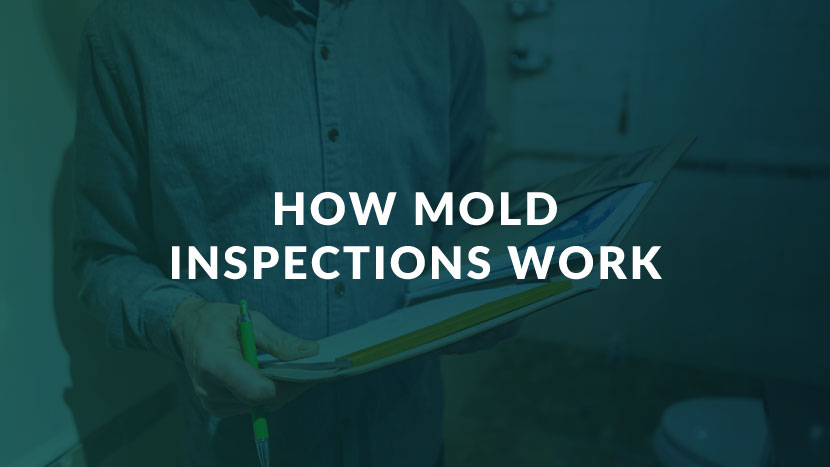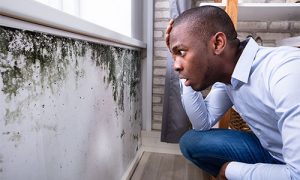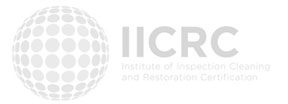
How Does a Mold Inspection Work Exactly?
Mold can be unsightly, dangerous, and damaging to your property. If you’re experiencing or suspect a mold outbreak in your home or business, you need to seek a reputable mold inspection company to stop the mold in its tracks before it grows into a much bigger problem.
At CLEAR Restoration, we believe it’s important to be informed of the mold inspection process and what we look for during an inspection, such as the presence of mold and the size of the problem.
[RELATED: Why Choose CLEAR Restoration as Your Baton Rouge Mold Specialist]
This way, our clients can better understand why we use the methods we do, and better equipped to prevent mold outbreaks in the future. So before you make the call to a mold remediation company, learn more about how mold inspections work first so you can be better prepared for what is to come.
[RELATED: Difference Between a Mold Assessment and Mold Remediation]
During a Mold Inspection, a Specialist Identifies the Mold Infested Areas
Mold requires moisture to grow. Louisiana has a muggy, humid climate where the moisture content is extremely high. Our region’s high humidity causes mold to grow frequently, especially in buildings without properly functioning HVAC systems and/or insufficient ventilation.
[RELATED: How to Improve Indoor Air Quality]
To detect the areas of potentially high moisture, we scan the entire structure of your home or office with thermal imaging cameras.
Then, the mold inspection specialist uses an extremely sensitive, high-tech moisture-detecting meter to test all areas where moisture content is potentially high. They also visually inspect those areas to identify any signs of discoloration or potential mold growth.
A Mold Inspection Specialist Finds the Source of the Mold Outbreak
If mold is detected in one area of your home or business, there may be other mold-infested areas as well. Mold is not always noticeable. It can hide behind walls, under cabinets, or in crawl spaces. All mold needs is moisture, food source (paper, wood, fabric, etc), and the right temperature to grow and spread.
[RELATED: Where Does Mold Usually Grow?]
A knowledgeable mold specialist will usually be able to determine the cause of your mold outbreak and where the moisture is coming from. The source may be as obvious as water damage in your kitchen or as subtle as years of improper ventilation in the bathroom.
[RELATED: When to Test Your Building for Mold]
Once the source of the problem has been identified, we address and provide a written report of the problem so you can take the next steps. In Louisiana, the company that performs mold remediation cannot perform the mold inspection as well.
When You Need a Mold Remediation Specialist
The Environmental Protection Agency (EPA) states that if the moldy area is less than 10 square feet (about 3 feet by 3 feet), the homeowner may be able to take care of the issue. Any infestation larger than 10 feet, however, should be handled by a licensed mold remediation specialist.
[RELATED: Advantages of Using a Quality Mold Remediation Contractor]
You should always hire a mold remediation company that recommends and refers to independent mold assessment companies for performing pre- and post-remediation testing. In Louisiana, this is to distinguish between a reputable mold remediation company and a potential scam.
Does Your Home or Office Need a Mold Inspection?
If you suspect that you have mold growing in your home or office, call the licensed team at CLEAR Restoration. We provide pre- and post-remediation testing to ensure the problem is identified and fully resolved.
For more information, contact CLEAR Restoration 24/7 today.




